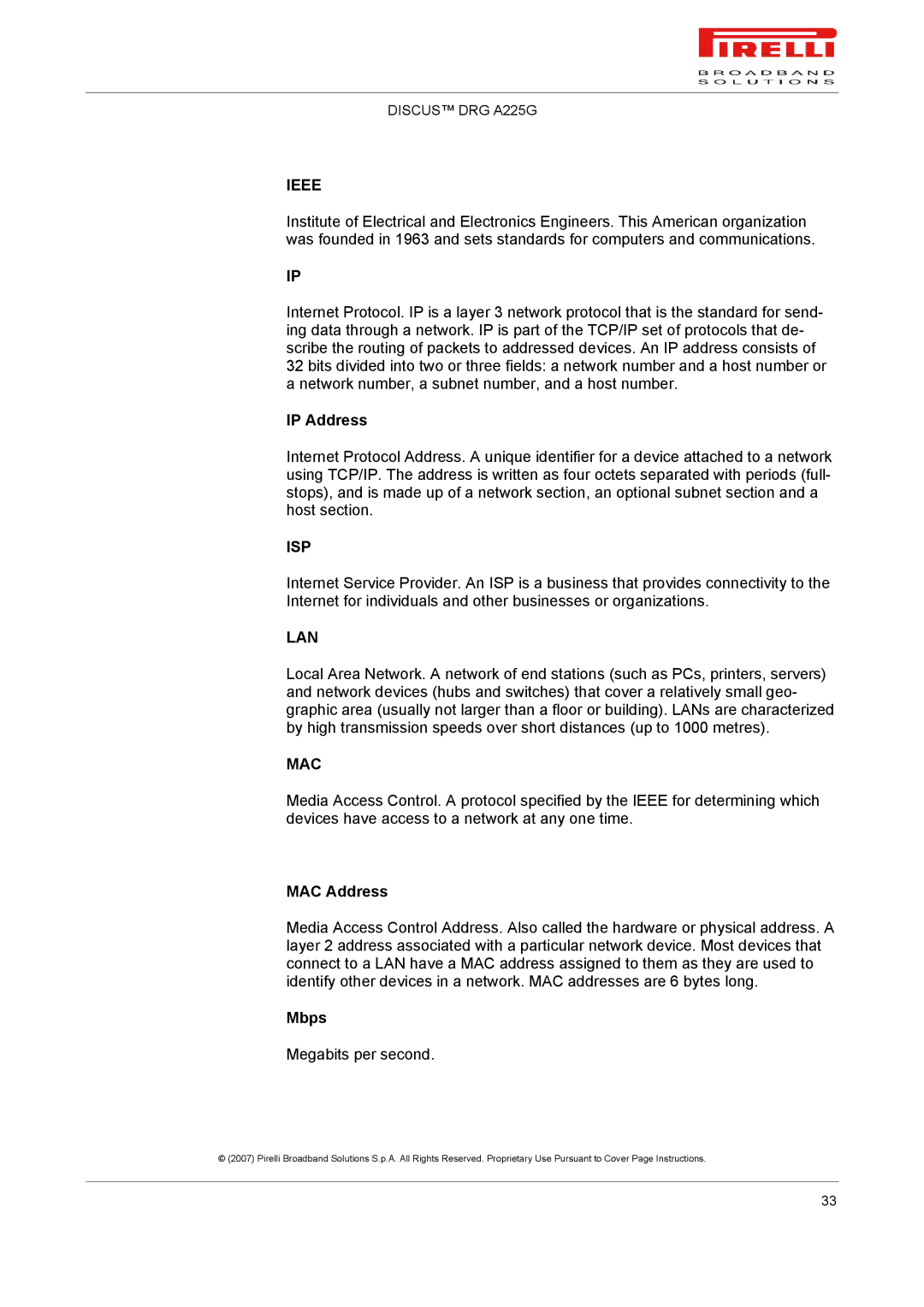
DISCUS™ DRG A225G
IEEE
Institute of Electrical and Electronics Engineers. This American organization was founded in 1963 and sets standards for computers and communications.
IP
Internet Protocol. IP is a layer 3 network protocol that is the standard for send- ing data through a network. IP is part of the TCP/IP set of protocols that de- scribe the routing of packets to addressed devices. An IP address consists of 32 bits divided into two or three fields: a network number and a host number or a network number, a subnet number, and a host number.
IP Address
Internet Protocol Address. A unique identifier for a device attached to a network using TCP/IP. The address is written as four octets separated with periods (full- stops), and is made up of a network section, an optional subnet section and a host section.
ISP
Internet Service Provider. An ISP is a business that provides connectivity to the Internet for individuals and other businesses or organizations.
LAN
Local Area Network. A network of end stations (such as PCs, printers, servers) and network devices (hubs and switches) that cover a relatively small geo- graphic area (usually not larger than a floor or building). LANs are characterized by high transmission speeds over short distances (up to 1000 metres).
MAC
Media Access Control. A protocol specified by the IEEE for determining which devices have access to a network at any one time.
MAC Address
Media Access Control Address. Also called the hardware or physical address. A layer 2 address associated with a particular network device. Most devices that connect to a LAN have a MAC address assigned to them as they are used to identify other devices in a network. MAC addresses are 6 bytes long.
Mbps
Megabits per second.
© (2007) Pirelli Broadband Solutions S.p.A. All Rights Reserved. Proprietary Use Pursuant to Cover Page Instructions.
33
